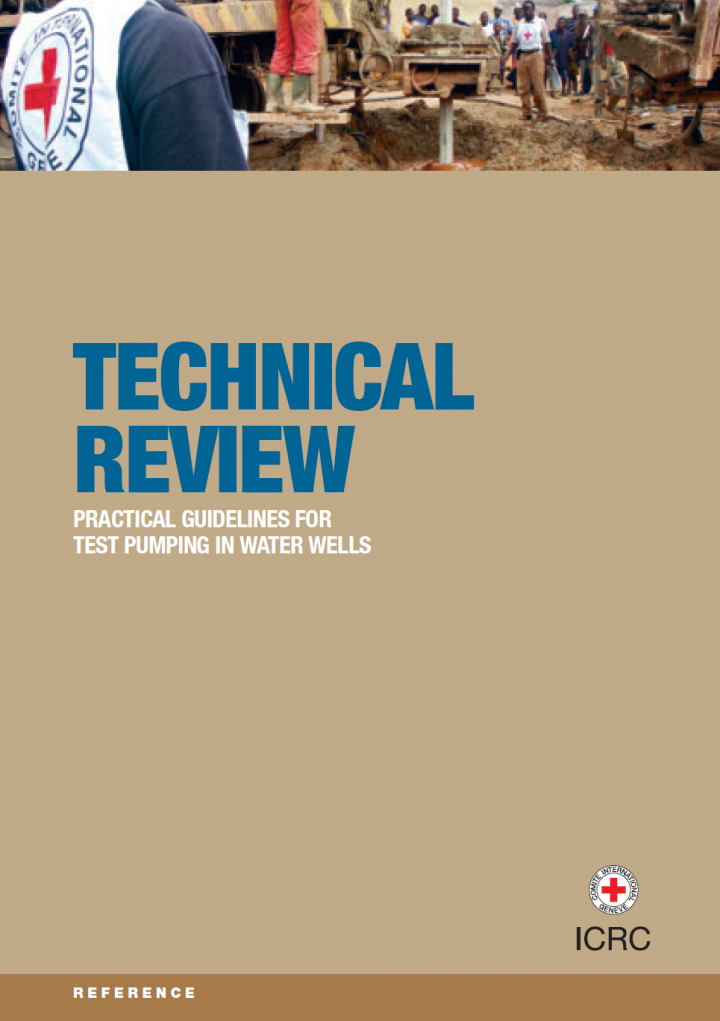Technical Review: Practical Guidelines for Test Pumping in Water Wells ICRC (2011)
Groundwater is frequently chosen as the most suitable source of drinking water, supplies of which are brought to the surface by rehabilitating existing boreholes or drilling new ones. Pumping tests are a practical way of obtaining an idea of the borehole’s efficiency and its optimal production yield. Much of the specialized knowledge and technical expertise needed for this purpose can be gained from the standard literature. However, field operations in remote areas or in difficult conditions often require flexibility and imagination in avoiding or solving technical problems. These guidelines are intended mainly as a practical tool and therefore contain a minimum of theory. They are aimed at water and habitat engineers working in the field who are undertaking or supervising borehole drilling or rehabilitation programmes and are not conversant with pumping- test procedures. The end result should be a cost-effective facility capable of supplying drinking water for many years.
Bibliographic information
ICRC (2011). Technical Review: Practical Guidelines for Test Pumping in Water Wells ICRC
Filter / Tags
OtherPoliticians and local decision makersPractitionersGuidelines and manualsEnglishWater (irrigation, process, other)
Downloads
Technical Review: Practical Guidelines for Test Pumping in Water Wells
Type: application/pdf
Size: 1.87 MB

